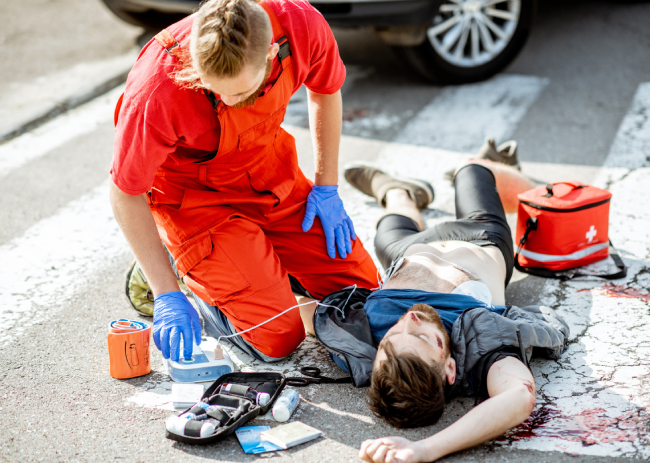Medical emergencies can happen unexpectedly, and being prepared to assist in such situations can make a significant difference in someone’s life. Whether you’re a trained medical professional or an everyday citizen, knowing how to be helpful during a medical emergency is crucial. This guide will explore practical steps you can take to provide assistance effectively and responsibly when faced with a medical crisis.
Stay Calm and Assess the Situation
This is by far the most important step in any medical emergency is to stay calm. Panicking can affect your ability to think properly and act decisively. Take a deep breath and assess the situation carefully. Look for any immediate dangers to yourself or the victim, such as oncoming traffic or hazardous conditions.
Call for Help
Once you’ve assessed the situation, call for emergency medical services immediately. In many countries, dialling 911 or the equivalent will connect you to the proper authorities who can dispatch medical assistance to your location. Provide as much information as possible, including your location, the nature of the emergency, and any relevant details about the victim’s condition.
Provide Basic First Aid
While waiting for help to arrive, you can provide basic first aid to the victim. If you’re trained in CPR (Cardiopulmonary Resuscitation) and the victim is unresponsive or not breathing properly, begin CPR immediately. If not, focus on stopping any bleeding, stabilising injuries, and keeping the victim comfortable until help arrives. In the event of a medical emergency, accessing resources like Safehaventraining.co.uk can provide valuable guidance and training for effectively assisting those in need.
Follow Instructions from Emergency Dispatchers
When you call for help, the dispatcher may provide you with instructions to assist the victim further. Follow their guidance carefully, as they are trained to provide support over the phone until medical professionals arrive on the scene. Be prepared to relay any changes in the victim’s condition to the dispatcher.
Comfort and Reassure the Victim
Medical emergencies can be frightening for the victim, so offering comfort and reassurance can make a significant difference. Stay with the victim, hold their hand, and offer words of encouragement. Let them know that help is on the way and that you’re there to support them until medical professionals arrive.
Communicate Effectively with First Responders
When emergency responders arrive, communicate any relevant information you have about the situation and the victim’s condition. Be concise and accurate in your descriptions, as this information will help them provide the best possible care. If you’ve administered any first aid, inform the responders so they can continue treatment seamlessly.
Assist with Crowd Control
In some cases, medical emergencies may attract a crowd of onlookers. While bystanders may have good intentions, they can sometimes hinder the efforts of emergency responders. If possible, assist with crowd control by directing bystanders away from the scene or delegating specific tasks to them, such as directing traffic or fetching additional supplies.
In Conclusion
Being helpful in a medical emergency requires a combination of preparedness, compassion, and quick thinking. By staying calm, calling for help, providing basic first aid, and offering comfort to the victim, you can make a difference in someone’s life during a critical moment. Remember to follow instructions from emergency dispatchers, communicate effectively with first responders, and assist with crowd control when necessary. With these skills and knowledge, you can play a vital role in ensuring the best possible outcome for those in need.
Shristi is an avid reader, recipe developer and wellness enthusiast. She’s probably making a mess in her kitchen right now.

